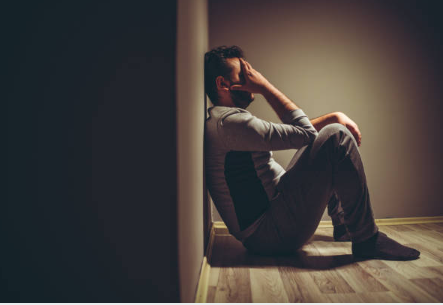How to Deal with Depression When Motivation is Low
The best way to deal with motivation dips is to identify the cause of them and then take the appropriate steps to address them.

Selfpause Affirmation App
Download the app to get 1,000’s of affirmation meditations and everything you need to write, record and listen to your own.
When motivation is low, it can cause many problems. These problems can range from depression and people-pleasing to stress and too many things to do. These problems can cause you to take more sick days from work and lose motivation.
Depression

If you’re suffering from depression, you may wonder how to motivate yourself. Luckily, there are several simple things you can do to help you boost your motivation and mood. Here are some tips for dealing with depression when motivation is low: – Create new incentives for yourself. If you feel like you don’t have any motivation to do anything, consider setting small goals and rewarding yourself for completing them.
– Try to find out what makes you tick. A lack of motivation can be extremely difficult to overcome, so you need to find out what makes you happy. You can look for hobbies that make you feel motivated, or take a class to learn more about your passion. If you find that the above methods aren’t working, seek professional help. A therapist can teach you coping mechanisms that can help you overcome your depression.
– Stay active. People with depression often have low self-efficacy and are often overwhelmed by everyday tasks. Try lowering your expectations for yourself within the task and envision how you will feel when you’ve completed it. If you’re struggling with depression, it’s likely that you’re not the only one. If your motivation is low, you may want to try asking co-workers or family members for help.
– Avoid excessive distractions. A constant stream of e-mails and phone calls can contribute to low motivation. To avoid being distracted, try to limit the time you spend on social media or reading the news. Both of these things are draining and may make you feel hopeless and worthless. Seeking professional help is a good idea for those who want to improve their motivation levels.
People-pleasing

People-pleasing is a habit that can cause you to lose yourself. You must find a way to get out of this cycle and make time for yourself. You must also set boundaries. People-pleasing is hard to break, but with a few simple strategies, you can overcome this habit.
Firstly, don’t try to please others when you don’t have the energy to do it. It can be a dangerous habit, as it can lead to a negative mindset and passive aggressive behaviors. This behavior can even stunt your growth. It also leads to a low level of motivation.
Secondly, don’t let people control your actions and emotions. People-pleasers often make themselves subservient to others, and they find it difficult to take their own stances or stand up for themselves. This habit often stems from an insecure self-image, which can be caused by toxic experiences or traumatic family history. It can also be brought on by abusive relationships.
Thirdly, people-pleasing often stems from a deeper issue. It may be rooted in low self-confidence, a lack of self-esteem, or an urge to control others. These issues can affect your self-esteem and cause you to be resentful and frustrated.
Stress

Stress is a physiological state that affects many aspects of a person’s life, including cognitive and affective processes. It mobilizes several neural and endocrine systems, and can influence the way a person thinks and behaves. In some cases, it can be beneficial for the individual or potentially essential for survival. While some people are adverse to stress, others actively seek it out. Moreover, some people respond well to mild stressors, which do not result in a complete loss of control.
Stress when motivation is low can be detrimental to a person’s mental health. It may lead to changes in motivation, including the lack of interest in routine activities and tasks. People with depression may also become less motivated to look for a new job. They may even experience a decrease in their self-esteem, which could lead to mental health problems.
Research into the effects of stress on motivated behavior has shown that the effect of stress on motivation is complex. Moreover, it affects multiple molecular signaling processes and targets multiple brain circuits. Although the effects of stress on motivation are complex, they remain central to the core symptoms of psychiatric disorders.
If you feel that you lack motivation, it’s important to seek help. A GP, psychologist, or counsellor can offer valuable advice. A psychotherapist can also help you overcome your problems. Whether it’s an anxiety or depression, finding support for yourself is an important step toward recovery. In addition, seeking help from a mental health professional can be a useful option for managing stress when motivation is low. They can help you sort through your feelings and understand the factors that make you feel less motivated.
If you have been recently affected by a life-changing event, it’s important to seek help. You might have trouble finishing tasks, or you might isolate yourself from your family or friends. It’s important to get help because life-changing events can have a lasting impact on motivation. If you’re feeling depressed, try breaking down your day into smaller parts and creating expectations for each day. This can help train your body to naturally fall into incremental behavior patterns.
Low testosterone

If your motivation is lacking, it could be a sign of a lower-than-normal testosterone level. A simple saliva test can determine your level. If you suspect that you may be suffering from low testosterone, your healthcare provider can recommend treatments and monitor your condition. In some cases, testosterone imbalance can lead to a variety of physical and psychological issues, including low motivation.
While symptoms of low testosterone vary, one common symptom is chronic fatigue. You may feel tired even after resting for several hours. Another symptom of low testosterone is depression. This is more common in post-menopausal women approaching menopause. Depression is also a normal part of the aging process. However, low testosterone does not have the same physical signs as depression. Men who suffer from low testosterone will not experience increased muscle mass or strength, as they do when they suffer from depression.
Low testosterone can also impact libido. It is not uncommon for men to experience a decrease in their libido and sex drive after reaching their thirties. Fortunately, testosterone replacement therapies are available to help men regain their natural energy levels and sex drive.
The first step toward treating low testosterone is to address the causes of low testosterone. A low testosterone level can be caused by a number of conditions, including chronic fatigue, thyroid disease, and sleep apnea. Other causes of low testosterone include antidepressants and certain medications. Addressing these conditions can help reduce or even completely eliminate the symptoms of low testosterone.
Several other symptoms of low testosterone include mood swings, decreased motivation, and difficulty sleeping. Low testosterone can also cause a loss of hair on the body and on the scalp. Low testosterone can also affect your ability to focus, and it can interfere with your ability to perform everyday tasks.
Our Top FAQ's
Set small, achievable goals for yourself. These can be things like taking a walk, completing a task, or spending time with friends or loved ones. When you complete these goals, it can help to boost your self-esteem and give you a sense of accomplishment, which can in turn help to increase your motivation.
-
Find activities or hobbies that bring you joy and meaning. Engaging in activities that you enjoy can help to lift your mood and give you something to look forward to.
-
Seek support from others. Talking to a therapist or trusted friend or family member can be helpful in providing a listening ear, offering guidance, and providing a sense of connection and support.
-
Take care of your physical health. Exercise, getting enough sleep, and eating a healthy diet can all help to improve your mood and increase your energy levels.
-
Practice self-care. Engage in activities that help you to relax and recharge, such as meditation, yoga, or reading a book.
To increase your self-esteem and self-confidence when struggling with low motivation due to depression, you may want to try the following strategies:
-
Identify and challenge negative thoughts and beliefs. Depression can often lead to negative thinking, which can in turn lower self-esteem and self-confidence. Try to identify the negative thoughts you have about yourself, and consider whether they are realistic or not. If they are not, try to come up with more balanced, positive thoughts to replace them.
-
Practice self-compassion. Be kind to yourself, and recognize that everyone makes mistakes and has moments of weakness. Instead of being hard on yourself, try to offer yourself the same kindness and understanding that you would offer to a friend.
-
Engage in activities that boost self-esteem. Participating in activities that you are good at or that you enjoy can help to improve your self-esteem and self-confidence.
To set achievable goals for yourself when feeling overwhelmed and unmotivated due to depression, you may want to consider the following:
-
Start small. Set small, achievable goals that you can work towards gradually. This can help to build momentum and give you a sense of accomplishment.
-
Be specific. Clearly define what you want to achieve, and make a plan for how you will do it.
-
Break goals into smaller steps. If you have a larger goal in mind, try breaking it down into smaller steps or tasks that are more manageable. This can help to make the goal feel less overwhelming.
-
Celebrate your progress. As you work towards your goals, take time to celebrate your progress and accomplishments. This can help to boost your motivation and self-esteem.
To find support and help from others when struggling with low motivation and depression, you may want to consider the following:
-
Reach out to trusted friends and family members. They can provide a listening ear and offer emotional support.
-
Seek out a support group. Joining a support group can provide a sense of community and connection with others who are also struggling with depression.
-
Talk to a therapist. A therapist can provide guidance and support in managing your depression and increasing your motivation.
-
Consider medication. If your depression is severe or persistent, your doctor may recommend medication as part of your treatment plan.
Here are a few additional strategies for coping with and managing depression when feeling low on motivation:
-
Practice relaxation techniques. Techniques such as deep breathing, progressive muscle relaxation, or mindfulness meditation can help to reduce stress and improve your mood.
-
Get enough sleep. Proper sleep is important for both physical and mental health. Make sure to get enough sleep each night by establishing a consistent sleep routine and creating a relaxing sleep environment.
-
Eat a healthy diet. A healthy diet can help to improve your mood and energy levels. Aim to eat a balanced diet that includes plenty of fruits, vegetables, and whole grains, and limit your intake of processed and sugary foods.
-
Engage in activities that bring you joy and meaning. Participating in activities that you enjoy can help to lift your mood and give you something to look forward to.
-
Seek professional help. If your depression is severe or persistent, it may be helpful to seek treatment from a mental health professional, such as a therapist or psychiatrist. They can provide support, guidance, and treatment options to help you manage your depression and improve your motivation.
